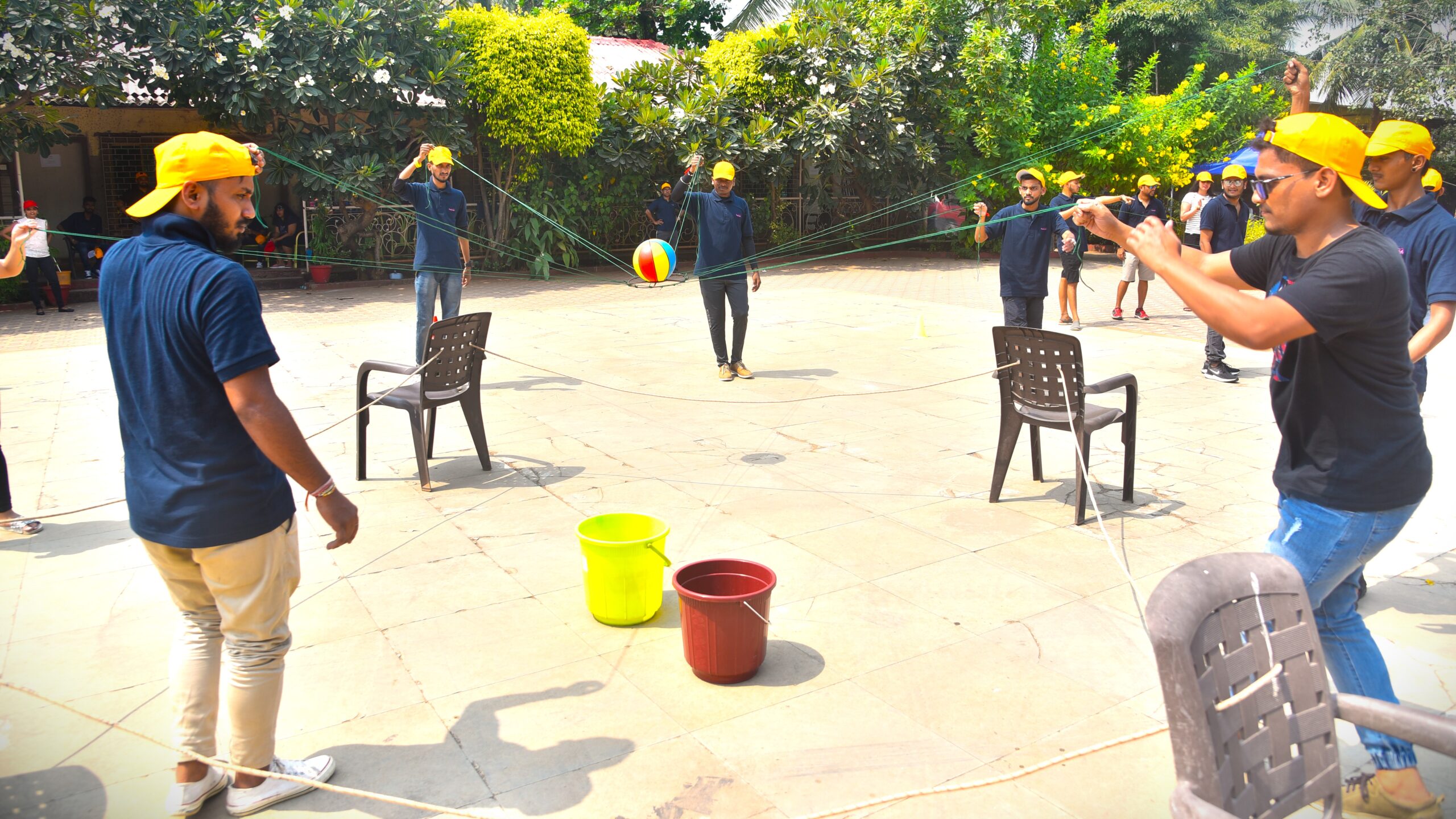The Science of Connection: How Team Outings Improve Communication and Trust

Team outings, often seen as moments of leisure, hold a far-reaching impact on workplace dynamics. Beyond just recreational escapes, these outings are the bedrock of trust, communication, and camaraderie within a team environment. Picture this: a day spent outdoors trekking, or an evening engaged in team-building activities.
These experiences transcend mere enjoyment; they become the catalysts for fostering robust communication and trust among team members. In the world of teamwork, where success hinges upon collaboration, effective communication and trust form the cornerstone. Team outings, with their ability to nurture these vital elements, are not mere distractions from work but instrumental in sculpting stronger, more cohesive teams within the professional realm.
Understanding the Psychology of Team Bonding
Human psychology is a tapestry woven with threads of social connections. It’s in our nature to seek and thrive within relationships. Team bonding emerges as a key player in this intricate tapestry, fostering a web of trust and communication among team members.
Picture this: individuals united by shared goals, experiences, and ambitions.These connections transcend the confines of tasks and deadlines; they create an environment where trust blooms and communication thrives. Team bonding isn’t just a perk; it’s the fabric that weaves individuals into a cohesive unit, fostering an environment where collaboration becomes effortless and where the synergy of trust and communication propels teams towards success.
The Science Behind Improved Communication and Trust
Neuroscientific perspectives on social interactions and their effect
Our brains are fascinating! They respond to social interactions in remarkable ways. When we connect with others, especially during team outings, our brains light up. These interactions trigger areas in the brain responsible for trust and bonding.
How shared experiences outside the workplace stimulate trust-building hormones like oxytocin
Now, here’s where it gets intriguing. Oxytocin,plays a crucial role. Shared experiences outside the workplace—be it conquering challenges together or simply having fun—stimulate the release of oxytocin. This hormone acts as a bonding agent, strengthening trust among team members.
During team outings, these shared moments activate our brain’s oxytocin production. Whether it’s collaborating on an activity or sharing laughs over a meal, these experiences trigger a surge of oxytocin, fostering a sense of closeness and trust among teammates.
This scientific insight reveals that team outings aren’t just about having a good time; they’re catalysts for triggering our brain’s trust-building mechanisms, knitting team members closer together and enhancing communication and trust within the team.
Benefits of Team Outings on Communication
Improved Verbal and Non-Verbal Communication
Team outings serve as transformative arenas for enhancing communication within teams. In these relaxed settings, whether it’s a casual dinner or an outdoor adventure, the dynamics shift, encouraging improved verbal and non-verbal communication.
Conversations flow more freely, fostering open dialogue and active listening among team members. Moreover, these settings amplify non-verbal cues—like gestures and expressions—allowing for better understanding and connection between teammates.
Breaking Down Communication Barriers
A remarkable aspect of team outings is their ability to break down communication barriers inherent in workplace hierarchies. They create a level playing field, promoting equal participation and contribution from all team members, irrespective of their positions.
Additionally, these outings cultivate an atmosphere where diverse perspectives and opinions are welcomed and encouraged, thriving in the relaxed ambiance. Ultimately, team outings not only elevate communication but also pave the way for inclusivity, openness, and a more cohesive team environment.
Fostering Trust through Team Outings
Establishing Psychological Safety
Team outings play a pivotal role in cultivating trust among team members by establishing a foundation of psychological safety. These shared experiences transcend mere activities; they create an environment where individuals feel a sense of belonging and safety within the team.
Through these outings, empathy and understanding bloom as team members share common experiences, fostering deeper connections and camaraderie.By nurturing these personal connections, team outings lay the groundwork for strengthened relationships among colleagues, creating a supportive network beyond professional obligations.
Strengthening Relationships
Trust, forged through shared experiences, isn’t just a feel-good factor; it’s a potent catalyst for enhanced productivity and seamless collaboration within the team. It forms the bedrock for effective teamwork, empowering individuals to collaborate, innovate, and achieve collective goals more efficiently. Ultimately, team outings become the catalyst for building a cohesive and high-performing team that thrives on trust, mutual respect, and shared experiences.
Recently Organized and Successfully Executed Team Outing Event
For a renowned Film, Entertainment, and Acting School in India, we organized a meticulously planned two-day team outing for 30 participants. These individuals hailed from diverse departments—Sales, Marketing, Admin, HR, and Finance—spanning from fresh talents to seasoned department heads.
Event Objectives:
The primary aim was to fortify collaboration among team members and bridge any hierarchical gaps that might hinder effective teamwork.
Day 1: Building Team Dynamics
The day commenced with ice-breakers and energizers, setting the stage for a level playing field. Teams were formed through an engaging activity, promoting inclusivity by appointing the youngest member as the team leader. Each team developed its identity with a unique name and war cry, fostering a sense of ownership and camaraderie.
Tailored Activities:
Strategic activities like Blind Shepard, Poly Volley, and Stamp It were strategically employed to enhance strategic communication, quick collaboration, resource allocation, and decision-making skills within teams.
Reflective Learning Session:
A reflective session at day’s end allowed participants to share insights on strategy, team dynamics, leadership, skill honing, trust-building, and collaboration. The facilitator guided them in extracting actionable learnings applicable to their professional roles.
Day 2: Creative Collaboration Unveiled
The surprise activity, “Big Picture,” challenged teams to recreate an image fragment using provided art supplies. This experiential exercise reinforced the previous day’s learnings while fostering inter-team collaboration.
Impact and Conclusion:
The culminating moment revealed a merged Big Picture, symbolizing collective learning and collaborative efforts. This hands-on exercise not only provided a tangible takeaway but also solidified social bonds among participants, improving understanding of individual personalities and work styles.
Outcome:
The outing’s profound impact extended beyond fun activities; it nurtured stronger social bonds and a deeper understanding among team members. This holistic experience aimed at enriching teamwork, trust, and collaboration back at their workplace.
Team Outings and Their Impact
Engaging in nature-based activities during team outings offers a unique platform for fostering team communication and trust. These adventures, trekking, camping, or team-building exercises in natural settings, create an environment where team members collaborate, problem-solve, and communicate in a different context. The challenges and experiences in nature encourage open communication, build camaraderie, and instill trust among team members, leading to strengthened bonds and enhanced teamwork
Conclusion
Team outings work like magic! They’re not just fun; science backs their power to make teams stronger. By improving how we talk and trust each other, these outings create a better work gang. So, it’s a thumbs-up for companies to invest in these adventures. They’re like super glue for teams, making work a happier and more successful journey. they’re not just fun; they make teams stick together like a family, making work smoother and more successful. It’s a win-win—more fun at work and more wins for the team!




